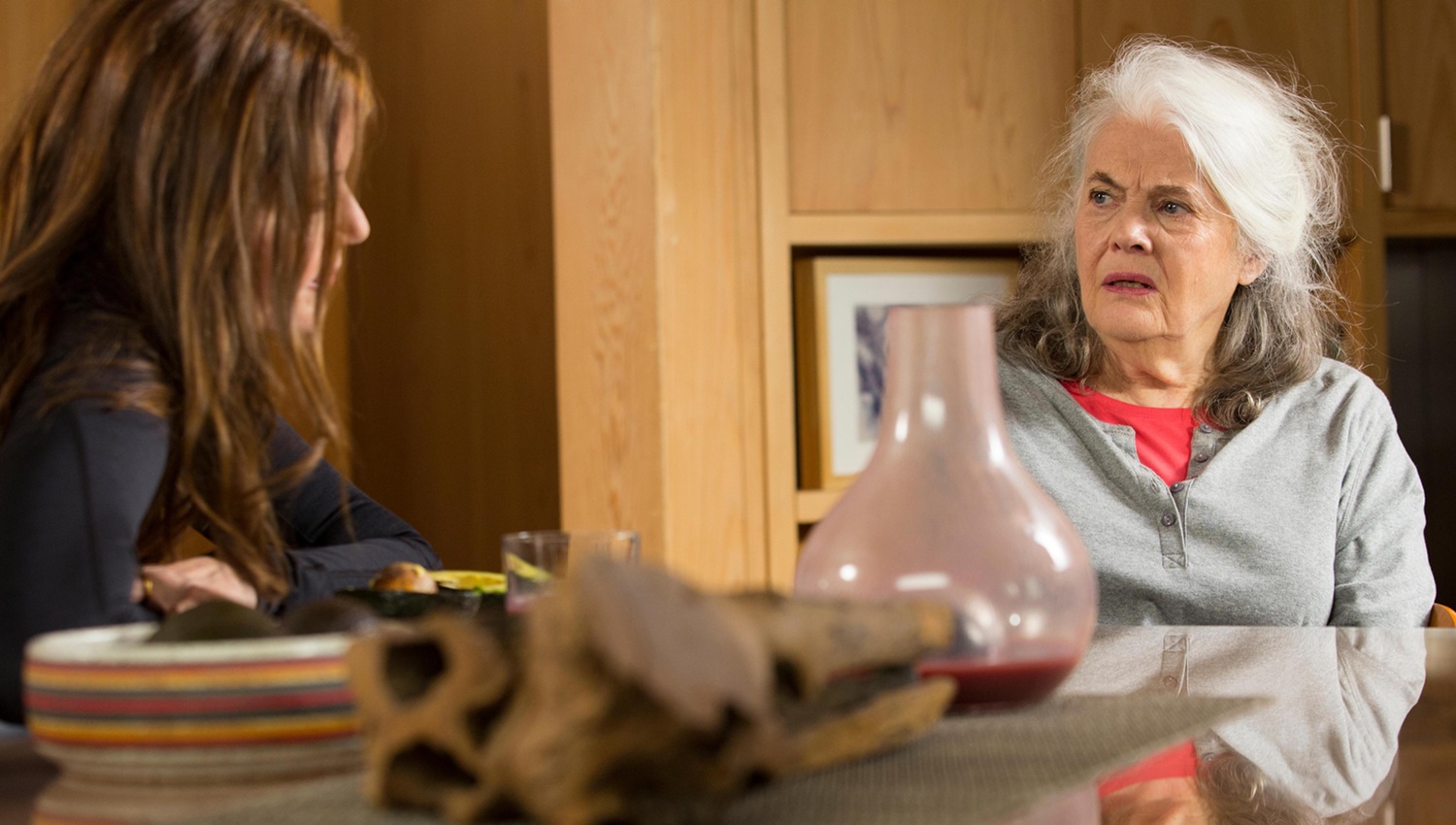
Marjorie Prime
Dustin Chase
If you combined Still Alice and Ex Machina, you might be able to imagine what Marjorie Prime is going for. On the one hand, Michael Almereyda’s drama based on Jordan Harrison’s play (which also starred Smith), is a fascinating look into the future use of artificial intelligence as a coping mechanism. The drama takes time to explore the humanity, comfort and all the possibilities this ‘Prime’ technology could afford us. On the other hand, Almereyda’s dreamlike film moves at a soft, lulling pace that could easy welcome the audience into a brief coma. Marjorie Prime asks the audience quite a few questions, whether they would utilize such technology, and each act offers a different facet to that conundrum.
Marjorie (Smith) is suffering from Alzheimer’s. Her memory has begun to get fuzzy depending on the day. Daughter Tess (Davis) and son-in-law Jon (Robbins), have moved into her beach house to care for her. Aside from medication, Marjorie spends time with her late husband Walter (Hamm), or at least the 50-year-old version of him as rendered by artificial intelligence. They sit and chat every day as he reminds her of things from their past, helping to keep her thoughts as organized as possible. When Marjorie eventually succumbs to her disease, Tess initiates the technology to create the image of her mother to cope with the loss. “This is just like when she was here. Me telling her things about herself.” The AI can’t learn on its own, aside from what it can research online, so Jon mostly feeds both Walter and Marjorie replicants more personal details.
A supporting campaign exists to get Lois Smith in the awards race, I’m afraid the competition is quite too stiff for this small, creative film.
In many ways Marjorie Prime shows us that AI can be used as a coping mechanism for a lost loved one. Like a memory box of information, only with a personality and the image we choose for it. The chance to be more open or honest, saying the things you never could. The flaw is that the technology is only as good as the person feeding them information. In this case, Walter’s concept of Walter is entirely made up of what Jon thinks of his former father-in-law. A supporting campaign exists to get Lois Smith in the awards race, I’m afraid the competition is quite too stiff for this small, creative film. Davis and Robbins, both previous Oscar winners, give the film levity, yet most of the movie is just actors and characters conversing with each other. It was shot in less than two weeks and outside the premise, there isn’t a lot of creative cinematic technology going on here.
The third act goes a little too far for my taste, the film becomes eager to rush through every use for this technology and show the audience the bleak future something like this might have on society. It’s beyond bittersweet, it becomes down right depressing. “The future will be here soon enough, you might as well be friendly with it,” Marjorie says. The success here is blowing the audiences minds in a tiny way, where we leave the cinema wondering how we might react so something similar coming to fruition in our lifetime.
Final Thought
Both fascinating and occasionally dull at the same time.
